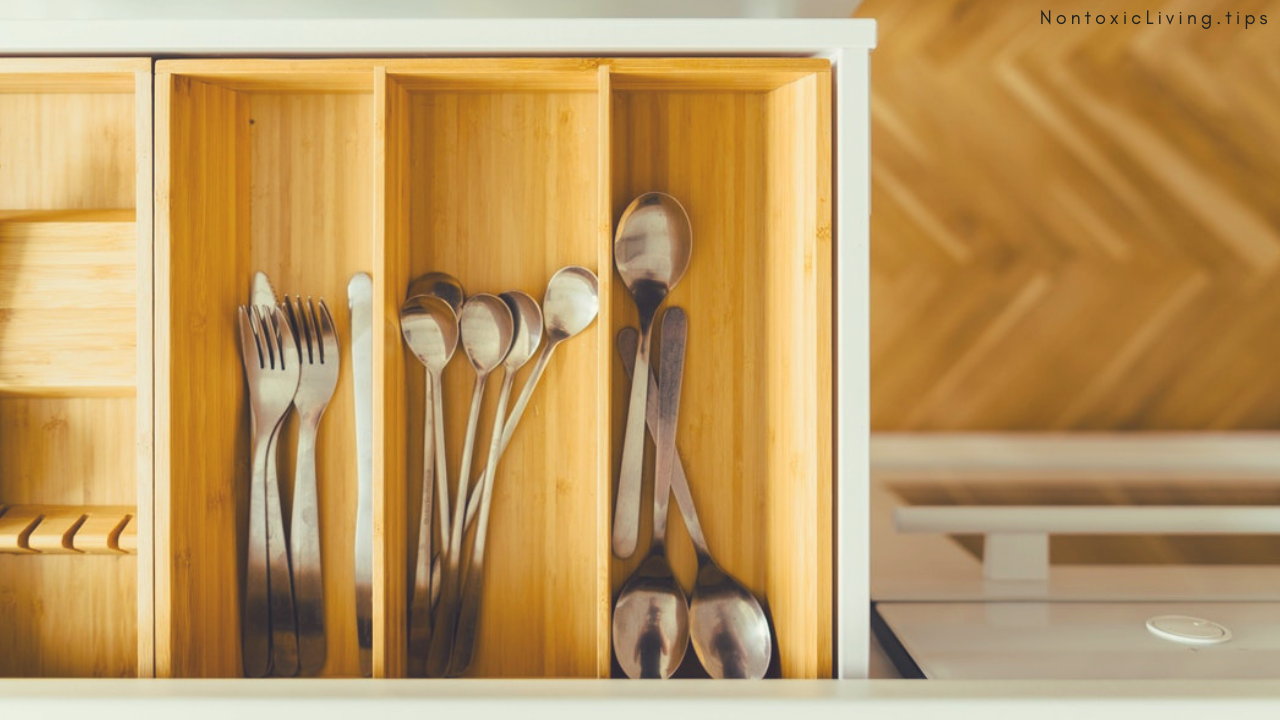
Tips for Nontoxic Kitchen Utensils
Sep 25, 2018by editorial team and Sophia Ruan Gushée
Cooking utensils and disposable eating utensils are often made of plastic, and sometimes vinyl (among the most toxic types of plastic). These materials may contaminate your diet with toxic chemicals as well as contaminate our environment during their manufacturing and even after you discard them.
Plastic utensils typically contain or involve toxic chemicals such as benzene, BPA, chlorine, dioxins, and phthalates. The chemical formulas that create different types of utensils can vary greatly, so each type may pose various potential health risks, including endocrine disruption.
Vinyl is sometimes used in plastic utensils (e.g., it sometimes is used as a coating to soften the handles of stainless steel utensils).
Vinyl, also known as PVC (polyvinyl chloride), is one of the most toxic types of plastics. Vinyl often involves the toxic chemicals mercury, chlorine, phthalates, lead, vinyl chloride, and ethylene dichloride. These toxic exposures may contribute to cancer, hormone disruption, neurotoxicity, and reproductive toxicity.
If your home contains children, then please take extra precautions! Children sometimes use kitchen utensils as entertainment (e.g., banging on pots and pans) and chew toys. Whether used as music makers or to chew on, toxic chemicals in kitchen utensils can makes their way into children’s bodies. So, if children live in your home, they are an extra important reason to use nontoxic kitchen utensils.
Tips for nontoxic kitchen utensils
Plastics, including vinyl, leach chemicals through normal wear and tear, as well as just over time. When cooking, the heat further facilitates the leaching of plastic utensils, increasing the risk that your food diet is being contaminated too.
By using nontoxic kitchen utensils, you can avoid melting plastics and the related toxic chemicals that may contribute to health conditions mentioned above (or even others that haven't yet been identified). Regardless of which materials you use as kitchen utensils, however, please read manufacturer's instructions for proper care and maintenance. Following those instructions may help reduce your toxic exposures.
My favorite materials for kitchen utensils include wood, stainless steel, and medical-grade silicone.
1. Wood. Wood utensils without toxic adhesives or finishes are excellent materials for utensils. They also won't scratch surfaces like metal can.
2. Stainless steel. Stainless steel is a popular option for cooking utensils. Just be careful about scratching the pots and pans, even those made of stainless steel.
3. Medical grade silicone. Silicone is a popular replacement for plastics, since it offers the conveniences of plastics: soft and pliable. While hard to find, medical grade silicone is the safest silicone to use. Similar to plastics, chemical formulas for silicone can vary greatly (just like there seem to be endless recipes for baking cookies) so risks from toxic exposures can vary based on the manufacturing ingredients. Regardless, based on what we know in 2018, silicone seems to be a safer alternative to plastics in kitchen utensils.
Disposable utensils
My favorite material for disposable cutlery is wood or bamboo.
Conclusion
Whether your kitchen utensils are used for cooking, eating, or playing, the materials your utensils are made of can contaminate your bodies. The most nontoxic materials for kitchen utensils include stainless steel, wood, and medical grade silicone. When disposable utensils are needed, consider buying bamboo ones, or bio-based utensils made of PLA or PHA.







